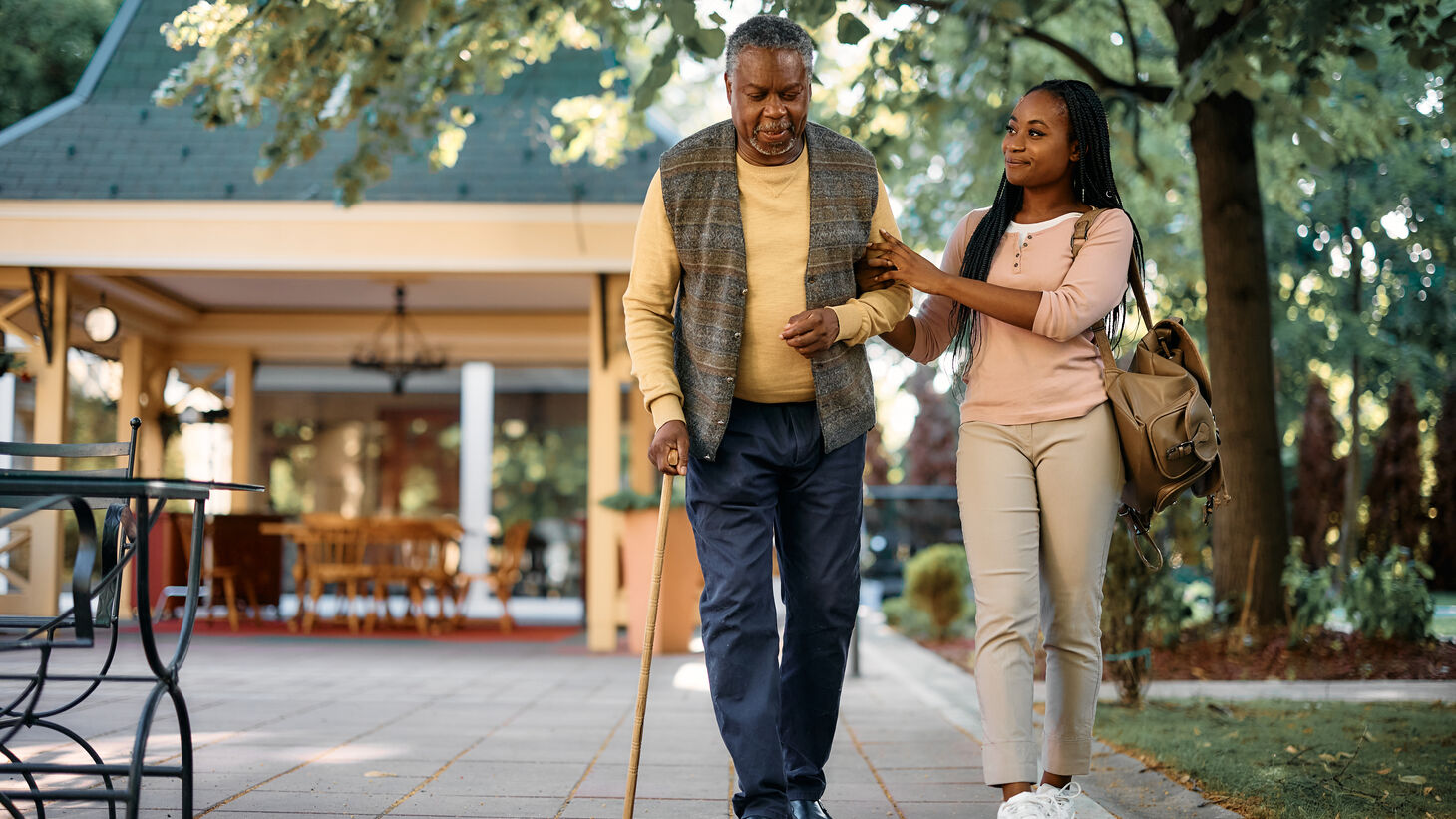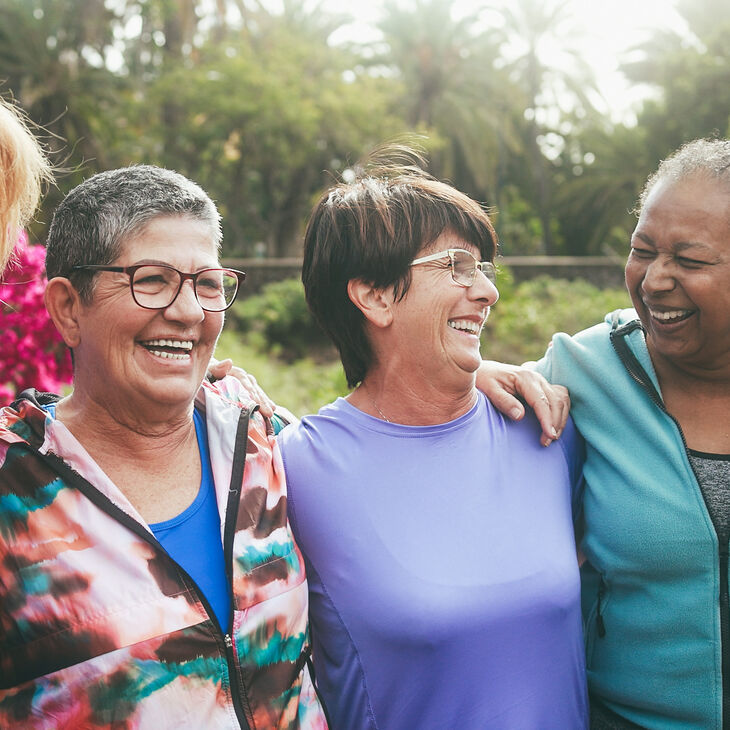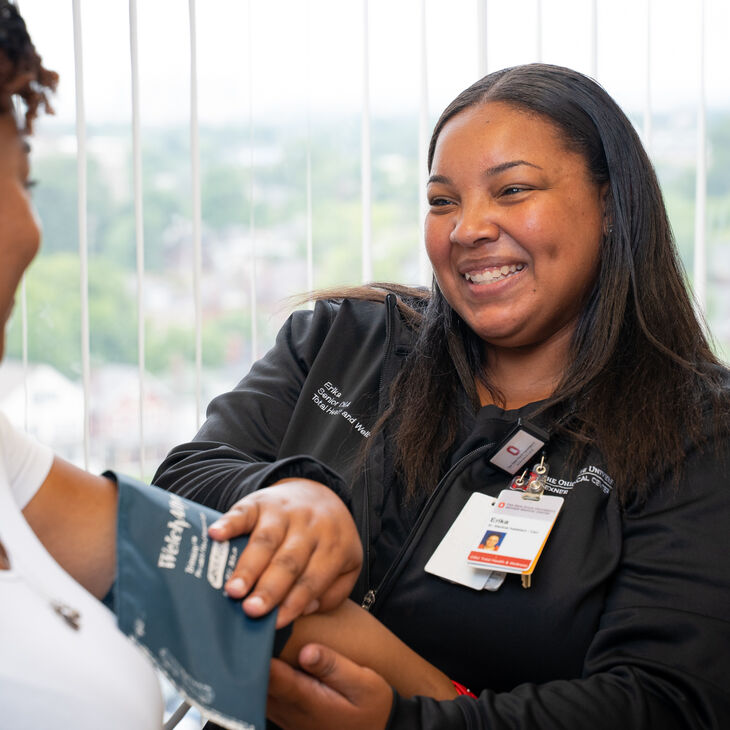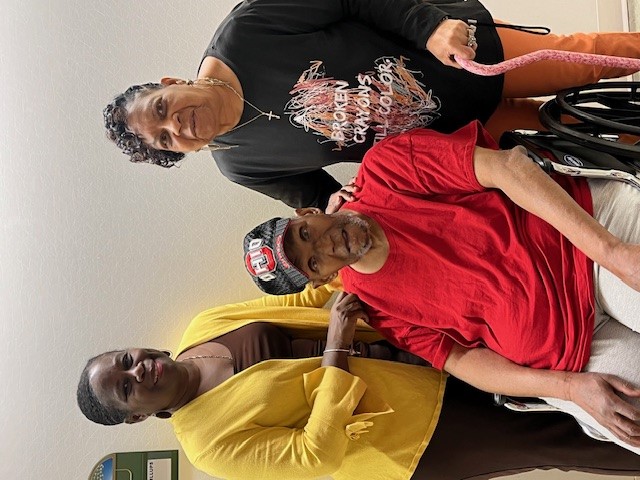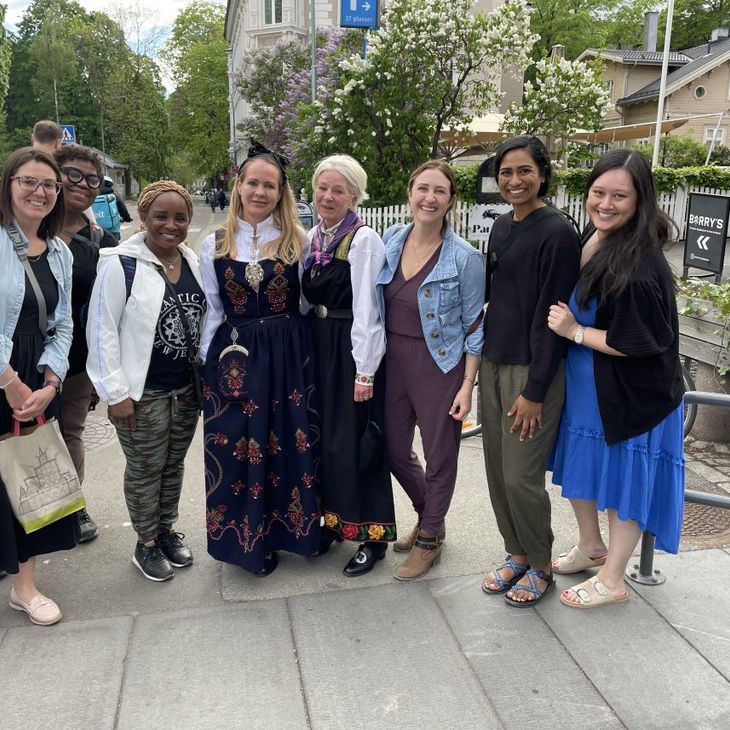by Dr. Mary Beth Happ and Dr. Karen Rose
Claire* contacted the College of Nursing looking for help. Her husband’s dementia had progressed to the point where he could not be left alone, and she was his primary caregiver.
Claire isn’t alone in her situation. Nearly a half-million (493,000) unpaid caregivers provide necessary assistance and in-home care right now to Ohioans living with dementia, providing services valued at more than $13 billion.1 Although dementia caregiving often involves a network of family and friends3, spouses commonly bear much of the caregiving responsibility. Nationwide, this healthcare crisis has reached astonishing numbers – an estimated 6.7 million Americans, most 75 years of age or older, are currently living with Alzheimer’s disease or other types of dementia – and these numbers are expected to increase dramatically as the Baby Boomer generation ages and lives longer than previous generations. Here in Ohio, the number of individuals with Alzheimer’s disease and other types of dementia will reach 250,000 in the coming year. The effects on individuals, families, healthcare systems and the workplace are staggering.
The Ohio State University College of Nursing has an outstanding cadre of clinical and research faculty specializing in gerontology, brain health and caregiving, putting it in a unique position to answer this particular calling to care. Funded by the Ohio Department of Aging (ODA), the college’s new Golden Buckeye Center for Dementia Caregiving will be the state’s central resource hub for caregivers of Ohioans living with Alzheimer’s disease or other dementias. The center is the first facility in Ohio specifically focused on developing and strengthening the knowledge, skills and supports of those who provide care to their loved ones. Our purpose is to provide dementia caregiving resources and education to family/friend care partners, primary care clinicians and employers/workplaces throughout the state. Programming and resources are accessible in-person and virtually; the center has a website platform for delivering educational modules and resources to caregivers and educational outreach to Ohio communities through partnership with OSU Extension and affiliated public television programming. We involve inter-professional students in center activities and introduce caregiving research opportunities to dementia caregivers who access the center. Additionally, the center engages interprofessional faculty with gerontology expertise from the Colleges of Nursing, Social Work, Medicine, and Arts and Sciences, as well as undergraduate student service organizations interested in supporting the Alzheimer’s disease cause.
Already the Golden Buckeye Center for Dementia Caregiving is helping Ohioans. In Claire’s* case, they were able to connect the family with an adult daytime respite center in her area and post advertisements for nursing students interested in companion care work in the home. The center will continue the conversation with Claire and her husband to make sure they have what they need.
Informal caregivers or “care partners” like Claire are family members or friends who provide instrumental help and support to persons living with dementia (e.g., organizing finances, companionship, grocery shopping, meal preparation, organizing or supervising medications and healthcare appointments, providing safe housing and so on). Those who live with and care for individuals with dementia face many challenges including “physical and emotional stress, difficult changes and losses in their relationships with life partners, loss of income and interrupted connections to other activities and friends.”2 While there are several organizations that provide educational information, support services and guidance to dementia caregivers in Ohio, access varies widely throughout the state. Filtering and understanding the plethora of information can be daunting. Caregiving may be most challenging for those living alone, in rural and underserved communities, immigrants, those caring for persons with developmental disability and members of minority groups.
The Golden Buckeye Center for Dementia Caregiving is part of Ohio’s Alzheimer’s Disease and Other Dementias Resource Program. ODA leads the collaborative with partnership from our College of Nursing, the Ohio Department of Medicaid (ODM), and several other contributing organizations, including the Benjamin Rose Institute on Aging, MemoryLane Care Services, Ohio-based chapters of the Alzheimer's Association, Ohio Council for Cognitive Health, Scripps Gerontology Center at Miami University and the Summit County Combined General Health District. The center also engages with a network of community partners, including OSU Extension, Area Agencies on Aging, the Franklin County Office of Aging, the African American Alzheimer’s and Wellness Association and the student organization Buckeyes Against Alzheimer’s. The center’s physical space at 760 Kinnear Road in Columbus hosts two large, all-purpose rooms suitable for movement/exercise activities with adjoining kitchens, disability-accessible bathrooms and adjacent free parking. The center’s resources will be open to the public later this spring.
Learn more about the Golden Buckeye Center for Dementia Caregiving online or contact us at 800-645-2946 or dementiacaregiving@osu.edu.
Mary Beth Happ, PhD, RN, FGSA, FAAN is distinguished professor of critical care research at The Ohio State University College of Nursing. Karen Rose, PhD, RN, FGSA, FAAN is dean and professor at The Ohio State University College of Nursing. Drs. Happ and Rose serve as co-directors of the Golden Buckeye Center for Dementia Caregiving.
*“Claire” is a pseudonym
1 Alzheimer’s Association. 2023 Alzheimer’s Disease Facts and Figures 2023. Alzheimers Dement 2023; 19(4).DOI 10.1002/alz13016 https://www.alz.org/media/Documents/alzheimers-facts-and-figures.pdf
2 National Academies of Science, Engineering, and Medicine. Reducing the Impact of Dementia: A Decadal Survey of the Behavioral and Social Sciences. Washington DC: National Academies Press; 2021, Jul 26 https://www.ncbi.nlm.nih.gov/books/NBK574341/
3 Song M, Paul S, Happ MB, et al. Informal caregiving networks of older adults with dementia superimposed on multimorbidity: A social network analysis study. Innovations in Aging 2023; 7(4): igad033. doi: 10.1093/geroni/igad033. PMCID: PMC10184695

